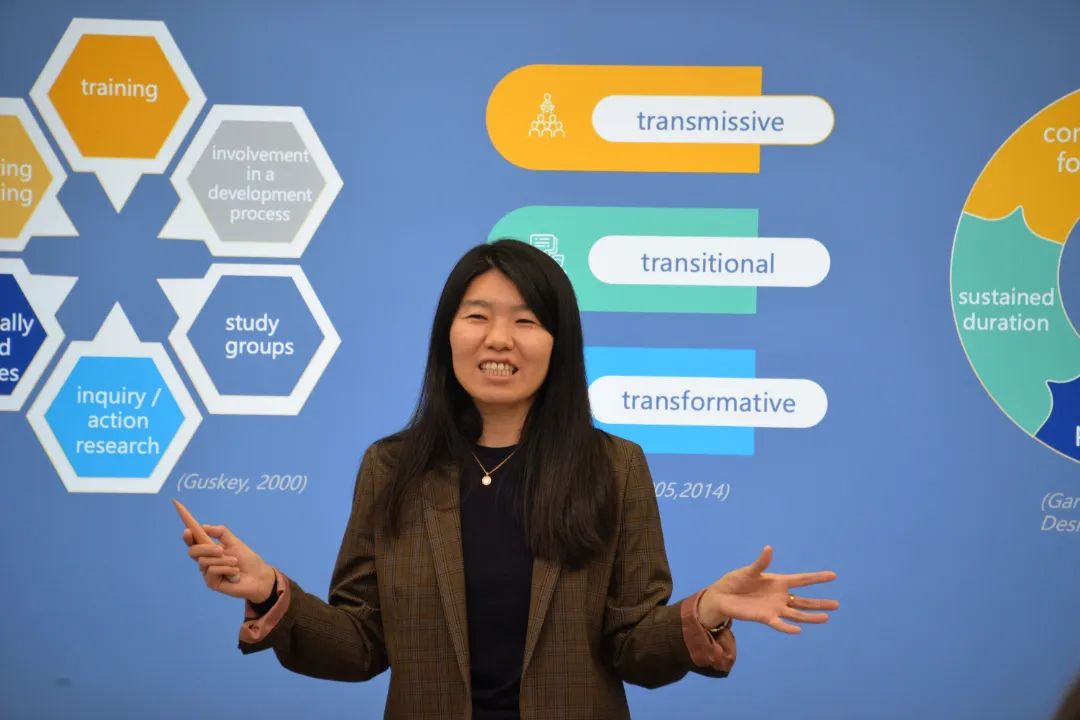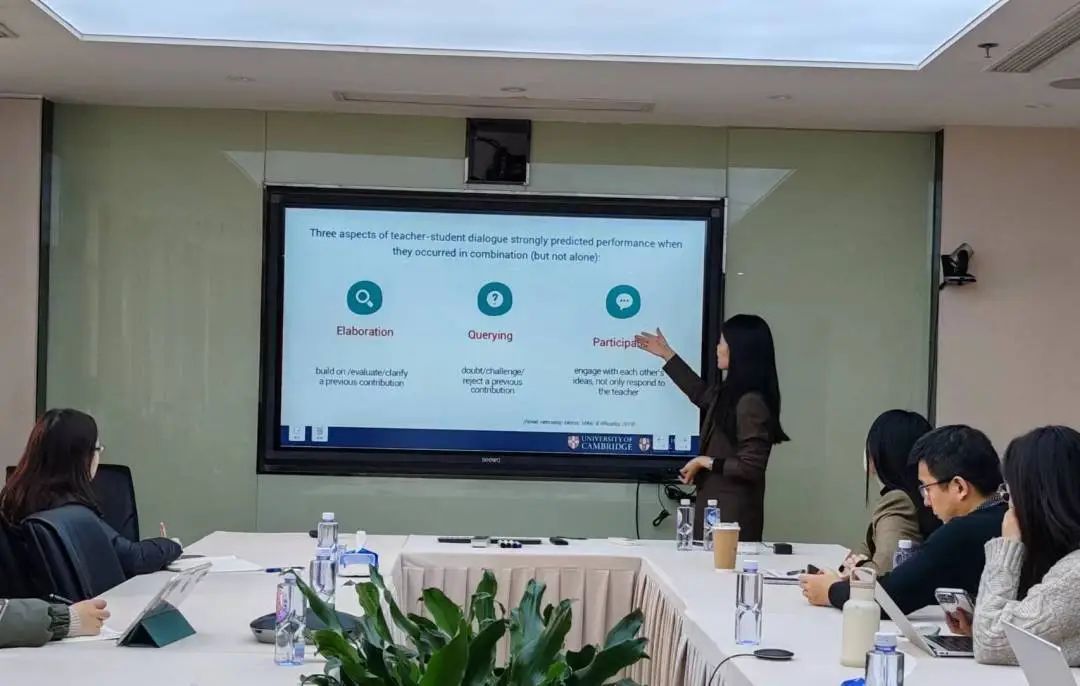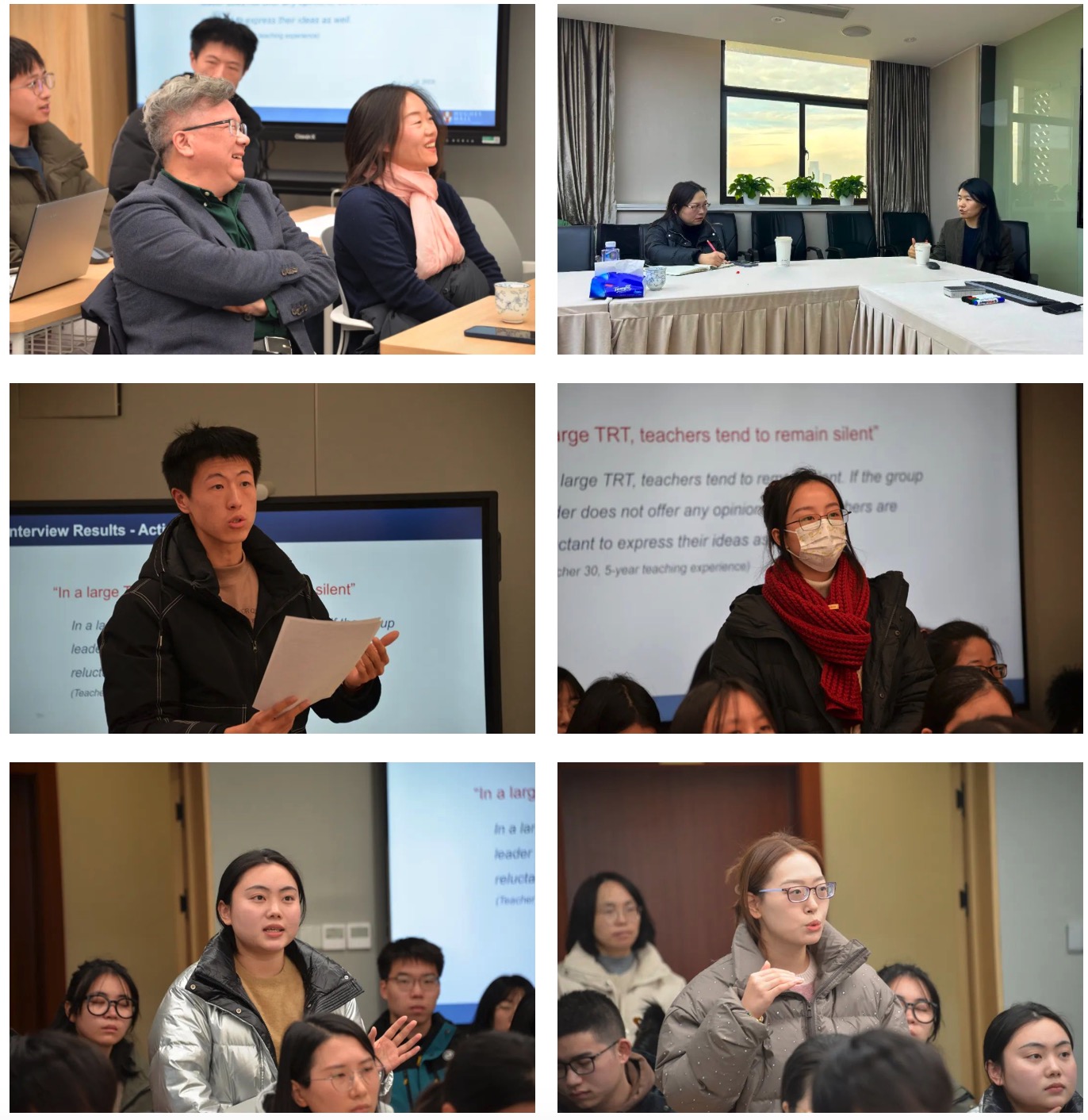ICI HuaXia Curriculum Forum║“From the Classroom to Research: Teacher-led Inquiry Practice” shared byDr. Ji Ying from the University of Cambridge
2024-01-02
On December 26th, Dr. Ji Ying, a postdoctoral researcher at the University of Cambridge's Faculty of Education and a researcher at Camtree, the Cambridge Teacher Research Exchange Platform,was the guest speaker at ICI’s 168th session of the Huaxia Curriculum Forum. She delivered a fascinating report titled "From the Classroom to Research: Teacher-led Inquiry Practice." In her report, Dr. Ji shared two recent projects from the Faculty of Education at the University of Cambridge and the Cambridge Teacher Research Exchange Center: one focused on teacher participation in lesson study research, and the other on promoting classroom group collaboration through the development of professional toolkits. Many faculty members and students from the Department of Education attended the report, filling the venue to capacity in a very lively atmosphere. The forum was hosted by Associate Professor Shi Yuchen from the Curriculum Department, with Professors An Guiqing, Cui Yunhuo, Xiao Sihan, and Zhou Wenye, among others, participating in the discussion.

Dr Ji Ying sharing
In the morning of December 26, Dr. Ji Ying shared her research during her doctoral studies in the first half of the report. She first reviewed the existing literature on Continuing Professional Development (CPD), highlighting the shift from focusing on the content (WHAT) of teacher professional development to the participants (WHO), and pointed out that teacher engagement is a key factor in making professional development effective. Compared to work engagement and student engagement, teacher engagement has received less attention in existing research. Dr. Ji further refined existing models, categorizing the factors affecting teacher engagement in professional development into four types: behavioral, emotional, cognitive, and social.

Following this, Dr. Ji detailed the factors affecting teacher engagement in CPD and how these factors function in three different professional development models. Her research showed that teacher engagement is influenced by intellectual, organizational, cultural, and self-actualization dimensions, encompassing 18 variables. Semi-structured interview results indicated that teachers at different stages of professional development have different core needs, resulting in varying levels of participation in observing exemplary lessons, conducting lesson study research, and participating in lesson observation and evaluation activities. Based on these studies, Dr. Ji suggested that teacher professional development should actively engage teachers' professional autonomy, provide a variety of motivational measures, advocate for inquiry-based collaboration among teachers, and offer opportunities for public recognition.


In the afternoon, the report moved into an exciting second half. Building on the morning's share, Dr. Ji mainly showcased professional toolkits developed by the CEDiR and Camtree research centers aimed at optimizing classroom group collaboration. Dr. Ji first discussed the impact of high-quality teacher-student and group dialogues on the academic performance of primary school students in the UK. Existing research has shown that dialogues featuring elaboration, querying, and participation characteristics can promote deep learning and the development of higher-order thinking.
Subsequently, she introduced the T-SEDA (Toolkit for Systematic Educational Dialogue Analysis) toolkit. Grounded in a solid theoretical foundation, the toolkit includes self-review checklists, classroom dialogue inquiry guides, and classroom dialogue coding schemes, providing effective support for teachers to conduct dialogue teaching and inquiry practices.

In the Q&A session following the lecture, Dr. Ji and the attending faculty and students engaged in enthusiastic discussions and exchanges on topics such as teacher professional development, teacher engagement, teacher inquiry, and the development of professional toolkits. Professor Cui Yunhuo affirmed Dr. Ji's research and, in the context of China's basic education situation, supplemented and clarified the three professional development models, also sharing his views on teachers' social participation. Professor An Guiqing, in relation to the cultivation of core academic competencies for primary and secondary school students in China, discussed the design, construction, and implementation of the T-SEDA toolkit with Dr. Ji, noting its significant practical significance for implementing core competencies.
This forum not only helped faculty and students systematically understand the latest research findings on teacher professional development but also provided new theoretical perspectives and solutions for supporting teacher professional development.
